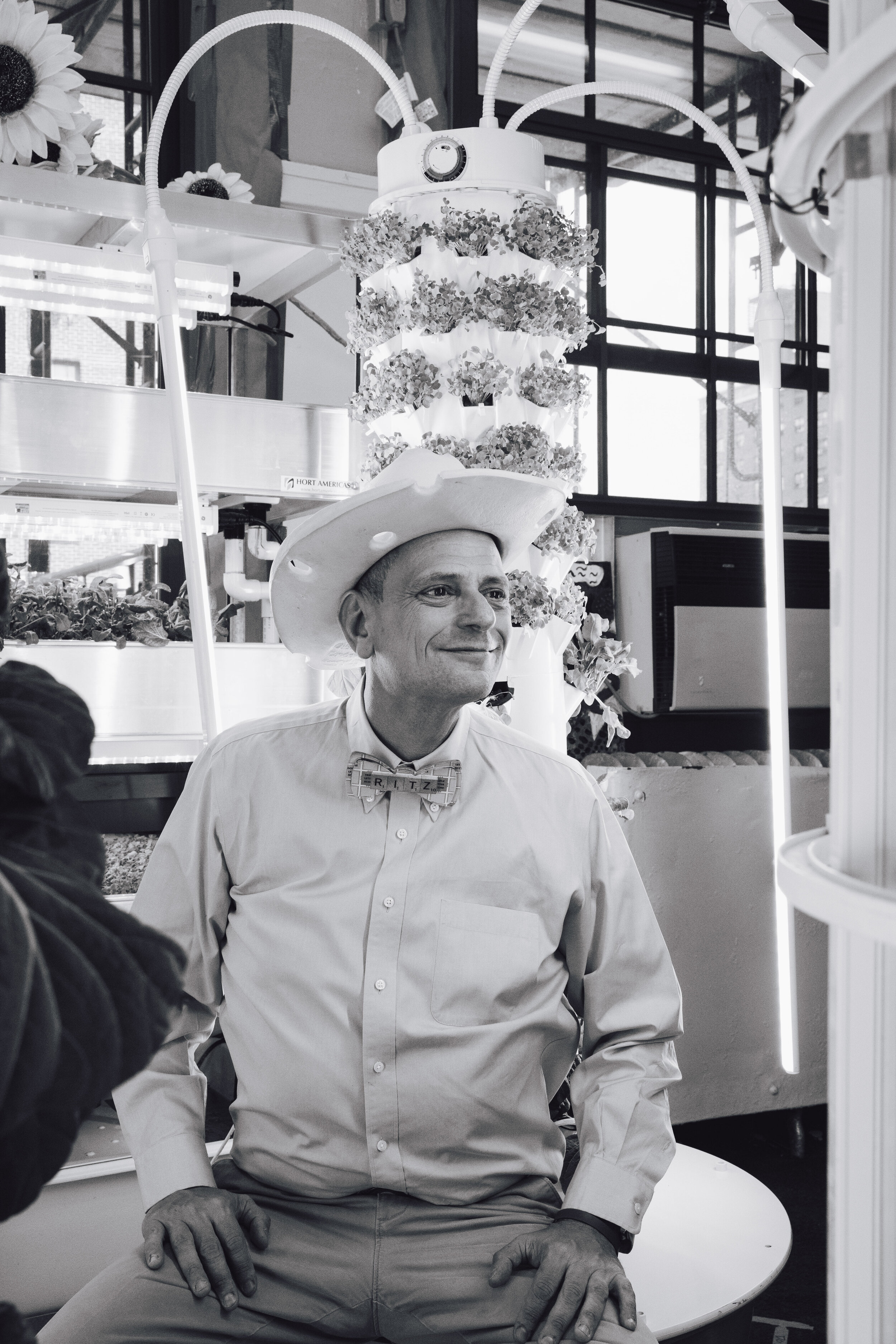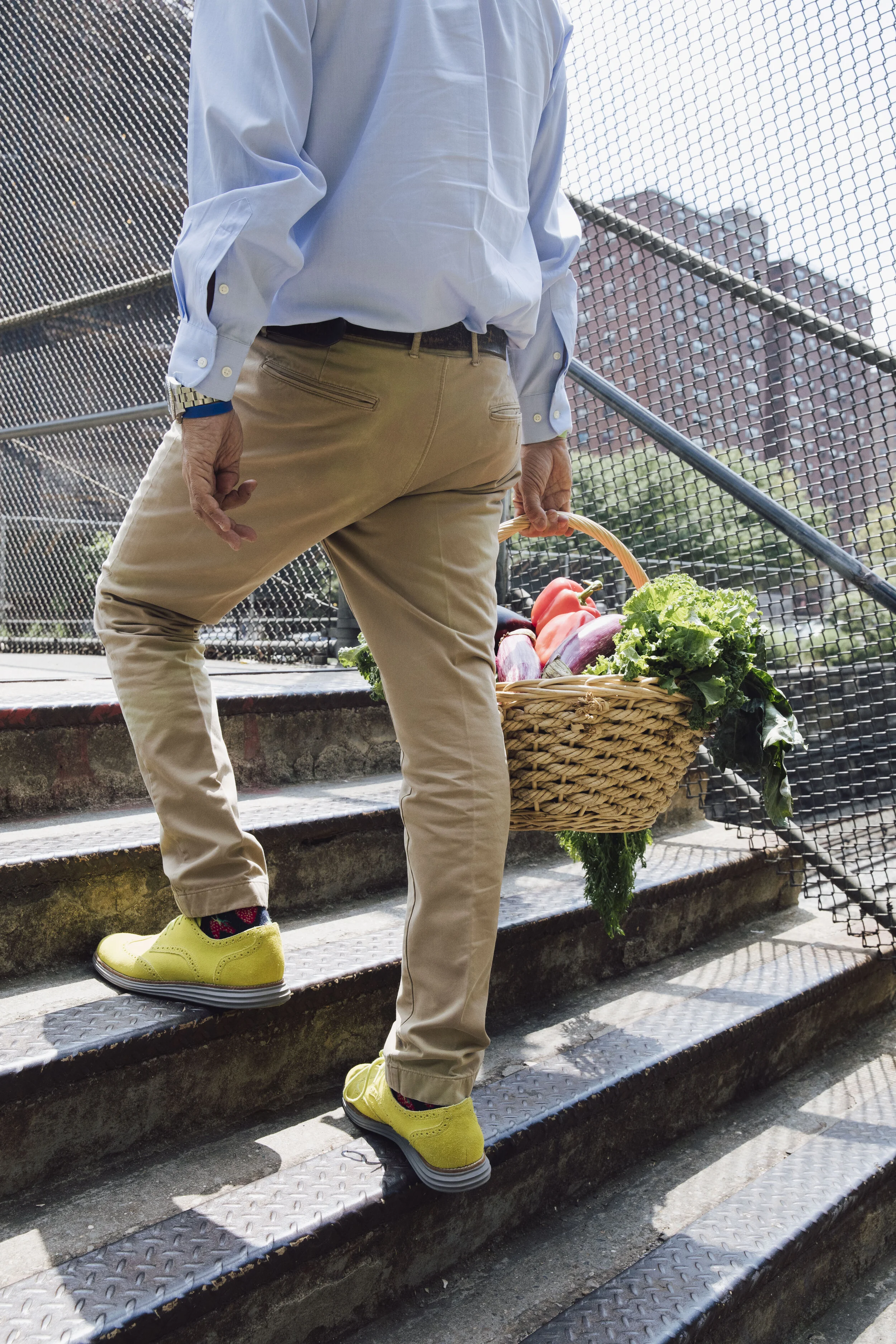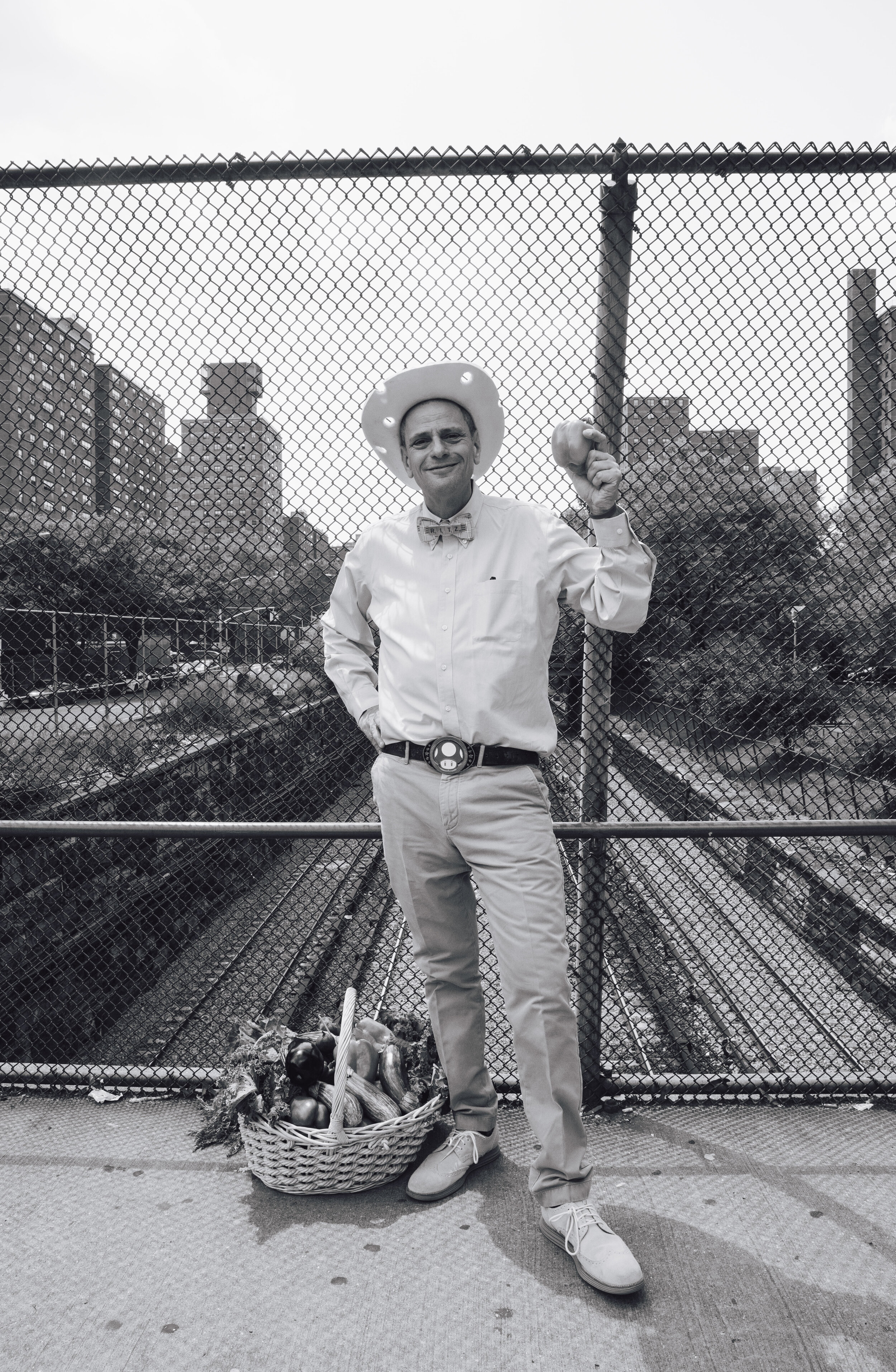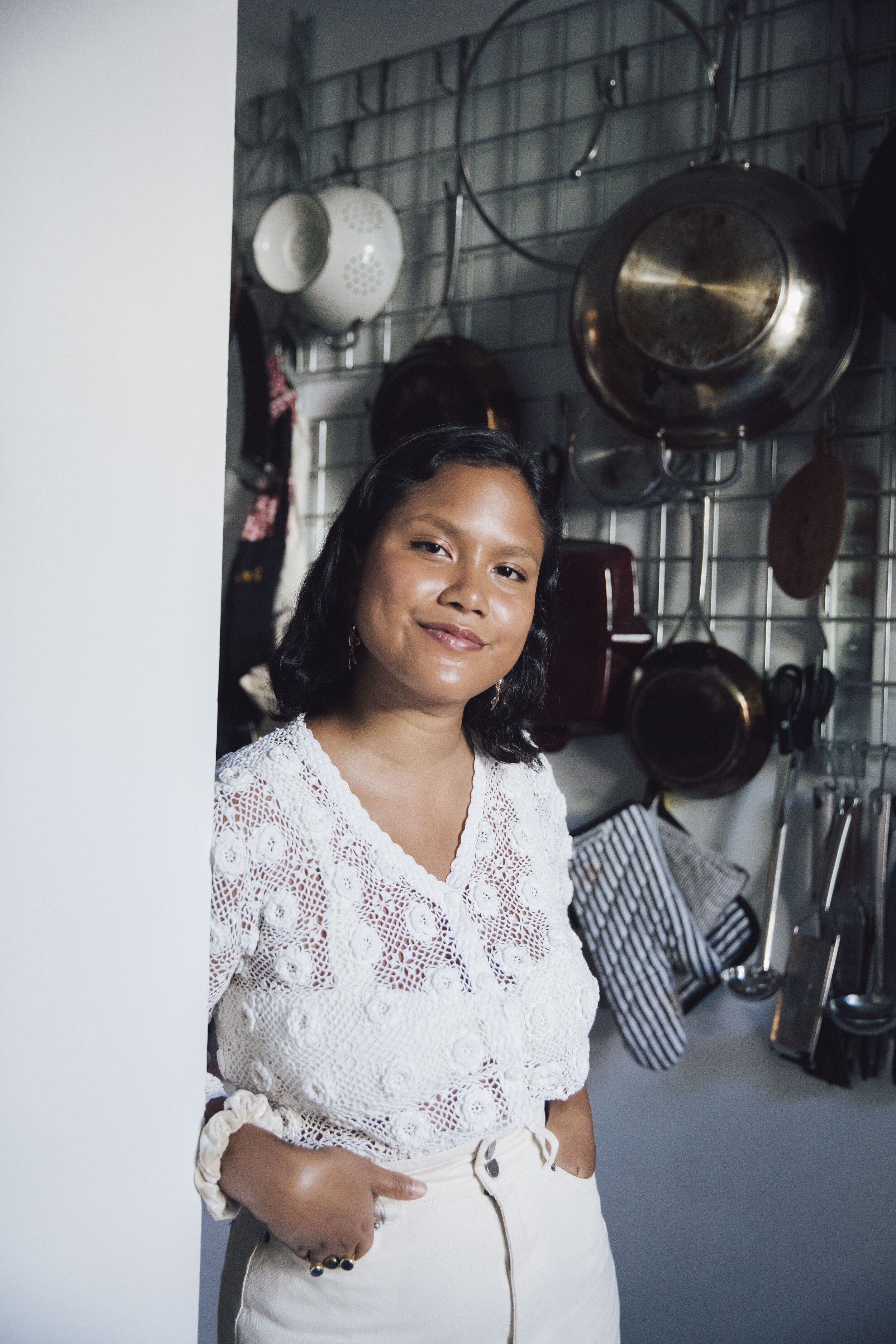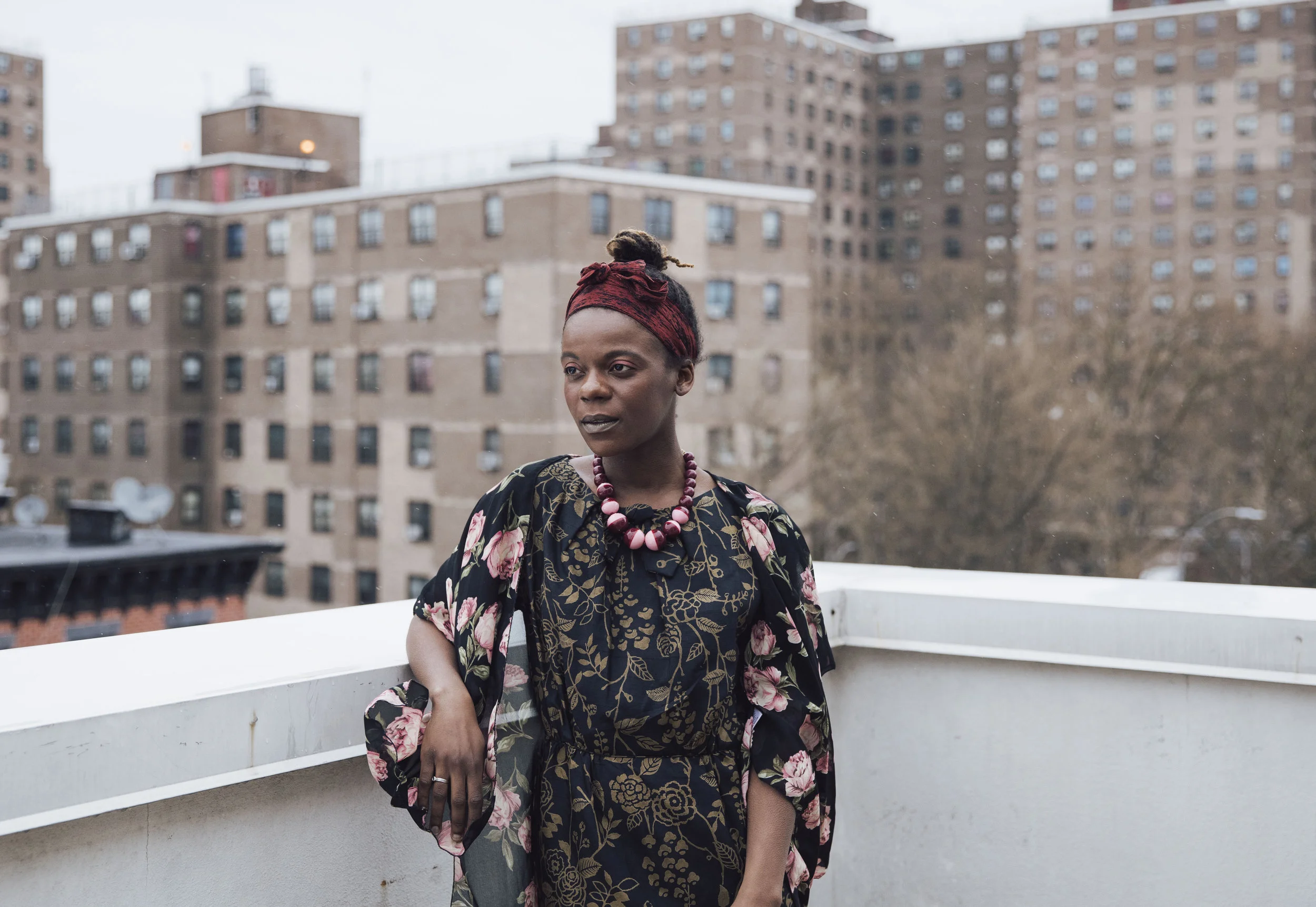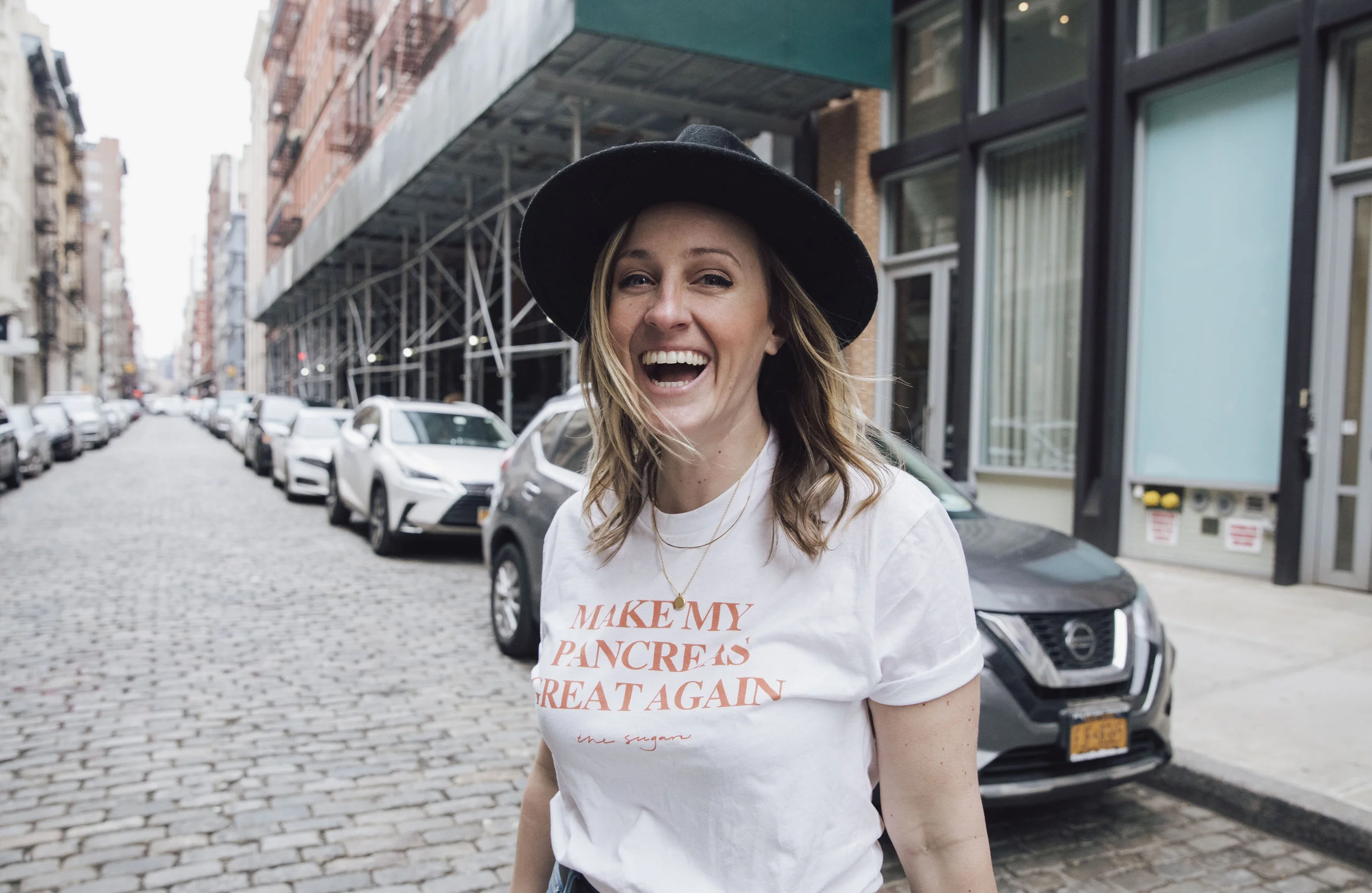how Stephen Ritz is planting seeds of opportunity in the south bronx
Stephen ritz is disrupting the way we teach kids to live, learn and eat through his program, green bronx machine.
WE TEAMED UP WITH QUOTED MAGAZINE TO TELL THE STORIES OF 5 PEOPLE THROUGHOUT EACH BOROUGH OF NEW YORK CITY WHO ARE DOING THINGS THAT MAKE AN IMPACT CREATIVELY, CHARITABLY OR SOCIALLY.
Name.
Stephen Ritz
Occupations, affiliations and projects.
I am CEO—Chief Eternal Optimist of Bronx County and the Founder of Green Bronx Machine. I am a resident of the Bronx. I'm a parent. I'm an educator and I’m an urban farmer. I believe in triple bottom line, I believe in businesses that benefit local residents and generate profit but are also good for the planet.
How did the Green Bronx Machine come about? What does it do? Who does it help?
Green Bronx Machine is the culmination of over 30 years in public education dedicated to moving marginalized students, who are apart from success, to become a part of it in ways that benefit 100% of society. We grow vegetables, our vegetables grow students, our students grow schools, our schools grow communities and our communities become resilient. So we are the art and science of growing vegetables, aligned to common core, whole school daily in-class instruction. We don't put gardens in school, we wrap school around a daily instructional model of an indoor garden.
We started as an after school program for disconnected youth. But when you see the data around what children are eating—the health disparities in communities like the Bronx—and realize that you can change the way children live, learn and eat through the simple act of growing food and create the next generation of environmental stewards and equity warriors. For me, that's what this is all about. It's important for children to know where their food comes from, but also to know in that process, how to exceed and excel in school.
For three years in a row, the average life expectancy in the United States has been going down. Year after year, the Bronx has been the least healthy county in all of New York state. We have some of the highest rates of diabetes, juvenile obesity, you know, really critical social determinants of health that are impacting both them and the nation as a whole. So if we change the way children eat, we change the way they live and we change the way they learn. We’re in a community that has limited means and limited access to healthy fresh food, and here we are in 100 year old building four stories up growing enough food to feed an entire community proves that the Bronx can change attitudes now and that we can grow something greater. As you see in this classroom, children get really excited to be here. This is a place of wonder, aspiration, inspiration, and 21st century technology that's really helping to heal the planet, heal our bodies and heal ourselves and most importantly, it’s locally grown. This is by the people, for the people, of the people, with local people.
“You can change the way children live, learn and eat through the simple act of growing food and create the next generation of environmental stewards and equity warriors. ”
What was the first time where you saw this program coming full circle for a student?
There's been a lot of peaks of success. First and foremost, I started this program with over 100 under credited children—children who came out of jail. Statistically we know that children between the ages of 18 and 22 coming out of jail are usually back inside within six months. We took that cohort of children and graduated them and none of them have gone back to jail to this day. They’re homeowners, business owners, gainfully employed, married with children—some of whom are even attending this school. So that was a game changer. You know, you can't talk to me about education, if you're not talking to me about opportunity. The beauty of the 21st century is that while this community continues to be pillaged by fast food and cheap food, good food has become a great source of employment—you know—local food, gourmet food, fresh food—so jobs exist in this space that never existed before. Those jobs bring dignity, meaningful, living wages and tremendous opportunity. When my students were able to sell their food at Whole Foods and we saw people paying cash and money and top dollar, you know, we went from growing food, vegetables to good vegetables and that's what this movement is all about—creating economic opportunity for children and empowering local residents to do something better and change your health. And we're doing it with 90% less water, 90% less space and no diesel trucks. So think about that.
Food distribution is the language through which society reveals its structure. But when we go from being consumers of products we really have no business eating, to producers of food that is healthy, nutritious, and that other people want access to, that flips the script on opportunity. That's a game changer.
“You can’t talk to me about education if you’re not talking to me about opportunity.”
What do you see as the future for this program?
From this humble little classroom we've grown to touching 50,000 students in 20 states in five countries daily. Within the next 18 months, we'll be touching over 500,000 students. We're being scaled by Anthem Blue Cross Blue Shield, we're working with partners in the NHL and we're hearing from school districts and school systems across America. We're looking at our data, our results and our price point and efficacy. We have a curriculum that is being used to train teachers in all content areas and we continue to generate assets. So I've gone from being disruptive to delivering and now people want to get on board and that's very exciting!
In general, why is it important for you to “do”?
I'm driven because I believe that people should not have to leave their neighborhood to live, learn and earn in a better one. The best investment I can make in the world is investing in the youth of my community. I also want to grow the next generation of high performing schools and happy, healthy and performing teachers. Teachers who are doing this really love this—we have 100% satisfaction rate with teachers so we're hoping to attract, grow and retain the next generation of teachers. We're really going to work in some of the most challenged communities and they love being here because this is exciting, It's invigorating!
What about New York City specifically drives you to do the work that you do?
We want to redefine the narrative of the Bronx and redefine the trajectory of our children's lives. That, to me, is critical. The Bronx is my lifeblood—I live and bleed this borough where I was born and raised. This borough means everything to me on so many levels. And I also think that if you can do it here, against some of the herculean odds and the constraints around this community, and similar communities, you can do it anywhere. It's fascinating to think that this very classroom has hosted visitors from 60 countries and six continents. The technology that we're using here in NYC we're using in Dubai—I'm proud to be partnering with the Qatar Foundation International to be bringing this very classroom and this very technology to Qatar, and we’re connecting children all across the world.
“I believe that people should not have to leave their neighborhood to live, learn and earn in a better one.”
What other programs and projects are you working on?
We are part of an outdoor farm and part of an indoor farm. We grow 100 bags of groceries for local seniors who are recovering from cancer and are food insecure. We have the first wheelchair accessible commercial farm and kitchen in America built in a special needs school. As we speak Green Bronx Machine is building the first commercial foster care run farm for children who are aging out of foster care and equipping them with 21 tiny homes to live in so they are moving from being dependent on the system to being wholly apart from it which is awesome.
We do workforce development—we want a food for others farm, which is taking an abandoned street and unproductive spaces and turning them into a highly productive inspirational spaces. So we do all kinds of things—I think that we're in the mindset of urban revitalization. The greatest natural resource in the world is the unused potential residing in marginalized and underserved communities and we don't need saviors, we need us. There is no justice, there's just us. And we are the ones we're waiting for. And we're proving here that we can do it daily.
Do you have a go-to mantra?
“Yes, we can.” And “the degree to which you resist injustice is the degree to which we are free.” And finally, “it’s easier to raise healthy children and fix broken men.” I'm proud to say in this classroom, we grow happy, healthy and high-performing children. We have flipped the script on public school performance and done it at a price point that no one thought was possible and that's because we have one thing that no one figured in on: people power. We really actualize these students to be engaged and be involved. And if they can see it, touch it, taste it and crave it, they want it and they go after it. So I like to say that here in the South Bronx, we're creating a model for success.
What's like the biggest lesson that you've learned so far?
How easy it is to really engage children. Which is great, because, you know, we keep thinking, “we've got to talk to parents, we've got to talk to parents”. No, we need to talk to children. McDonald's figured that out a long time ago about the power of kids and the “mommy, mommy, mommy” factor is huge. The other thing that I've learned and I continue to relish in daily is that if you're not pissing people off, you're not working hard enough, so you've got to be able to move from disruption to delivery, and keep pissing people off. But along the way, give everybody else credit.
I'm here to be disruptive. I'm not here for incremental change. I am really here to transform this community. But in the process, that means things have to shift. If you can't get on board, you better get out of the way. If you're not willing to do the kind of work that you want for your children here, if you're here to clock in for a check, please clock it somewhere else. Our children and this community need the very best and I'm determined to love these children, the way I love my own and that's what this is about. All the data says one thing: that children who have access to one kind, caring adult can succeed in life and I am determined to be that child, that kind caring adult for as many children as possible.
“I’m here to be disruptive.
I’m not here for incremental change.”
Who do you look for look to for inspiration?
I look to my students for inspiration, and they give it to me daily. I get much more love than I ever give away. I think about some of the obstacles that these children have to face on a daily basis just to get to school, whether it's transportation, poverty, hunger or displacement. So for me, the fact that they are here early and stay late and greet me every day with big smiles is awesome sauce.
I have some personal heroes of my own. Certainly Mrs. Obama has been a tremendous influence on me. But even closer to home are the people I have greater access to: my own parents, my own teachers and my colleagues. One of the biggest heroes in my life is a gentleman named Robert Shetterly, a portrait painter for Americans Who Tell The Truth. I was just honored and humbled that he would paint my portrait. Now more than ever, and so many levels, we need the truth because the truth will set you free and the truth is that these children want to be part of the solution. The truth is children understand the truth. The truth is children need to be nurtured in the truth. Children don't need candy and products to feel better. They need love and support and that's what this is about.
If someone wanted to disrupt the industry that they’re in or make a change in general, what would you tell them?
If you're going to disrupt something, do it and don't be afraid to fail because failure just gets you one more step closer to an epic success. But if you're going to fail, fail fast. Don't be afraid. And stick to your values. Because if you don't stick to your values in times of crisis, they're not values, they're just a part time hobby.
I've also learned to stay in your lane. There are a lot of things that concern me in the world but you have to find what your sweet spot is. You can't lead people if you're in three lanes on the highway. So for me, it's know your lane, stay in it, excel, get lots of support, and be very recursive. Be your own toughest critic. Love it and never give up. We have an expression in our house, “Team Ritz never quits.”
BY “DO-ING” YOU CREATE YOUR OWN UNIQUE LEGACY. HOW DO YOU WANT YOUR LEGACY TO LOOK?
Well, my favorite crop right now is 75,000 pounds of vegetables later. My favorite crop is organically grown citizens, graduates, members of the middle class, children who have succeeded and gone on from college to launch careers of their own, children who are voting children, who are staying out of jail, who no longer drink soda and crap in school. Children who want to be farmers and 21st century farmers and children who understand what migrant labor is. Because a lot of times in this class, we hear the magic words, “it's not fair!” And when I hear those words I get really excited because you ask a third grader, “What are you going to do about it?” and they want to change the world. Right here we're growing the next generation of equity warriors and environmental and social justice stewards. Children who really want to change the world and change themselves and eat better. They love to cook and I love to eat, so it's a great combination.
I grew up in a very tight knit community, I grew up in a very multi ethnic, multiracial community and I grew up in a world where we loved people and used things. And sadly, today, we're living in a world that loves things, and uses people. So I'm trying to bring a little bit of love and connectivity back to the world and trying to bring some empathy and compassion with a little bit of a minimalist attitude. Again, the greatest investment I make is the investment I spend in this classroom here. This is my happy place, My sacred space.

